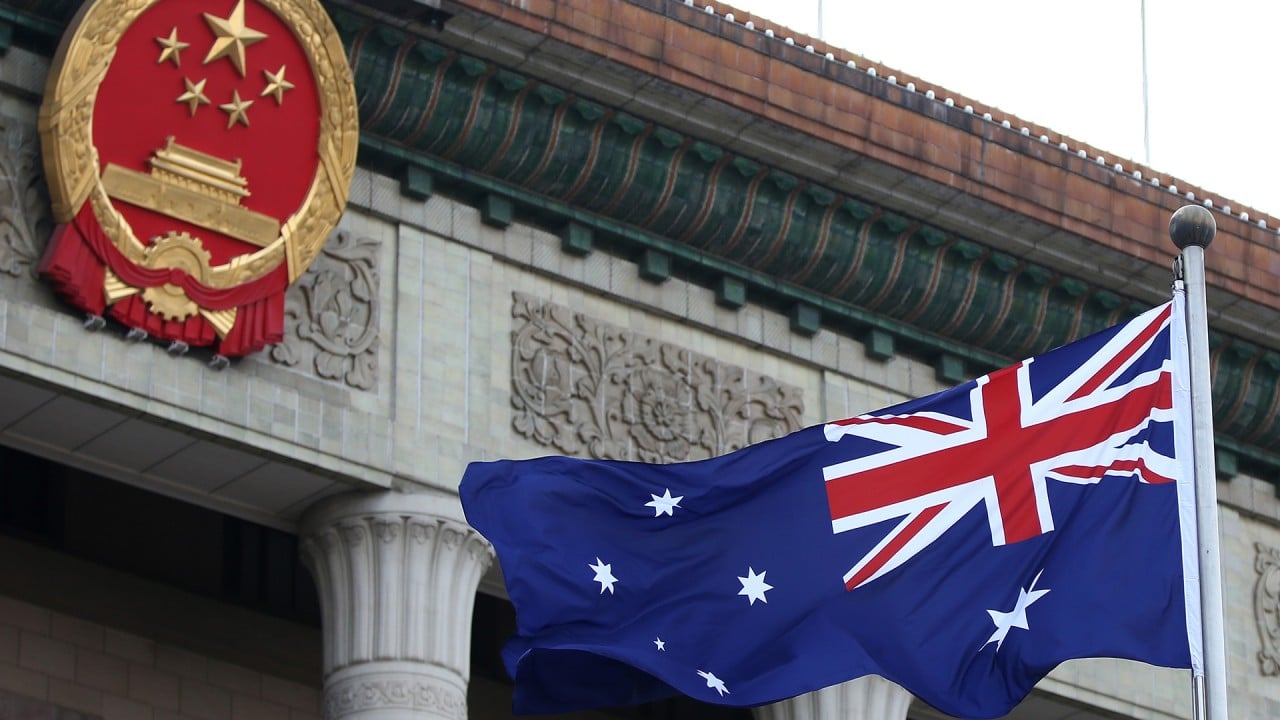
China-Australia relations: Beijing slaps ‘distressing’ duties of up to 212 per cent on Australian wine imports
- China’s commerce ministry says it will impose temporary anti-dumping measures on Australian wine imports from Saturday
- Australia agriculture minister David Littleproud responds by saying ‘the Australian government will vigorously defend the industry’
China’s commerce ministry said on Friday that it will impose temporary anti-dumping measures on Australian wine imports from Saturday.
The duties will range from 107.1 to 212.1 per cent, China’s Ministry of Commerce announced on Friday.
The commerce ministry said in a statement announcing the measures that “there is a causal relationship between [wine] dumping and material damage”.
China is the biggest destination for Australia‘s wine exports, accounting for 39 per cent of total shipments in the first nine months of 2020, according to Wine Australia, an industry body.
“This is a very distressing time for many hundreds of Australian wine producers, who have built, in good faith, a sound market in China,” Australia trade minister Simon Birmingham told Australia media on Friday.
We’re deeply concerned by this. In light of the recent comments by China, it gives the perception this decision is predicated on something other than any wrongdoing by the wine industry
“The Australian government will vigorously defend the industry,” agriculture minister David Littleproud said on Friday.
“We have 10 days in which to appeal, and we’ll work closely with the industry around that.
“Obviously we’ll exhaust all avenues available to us through the [World Trade Organization].”
At the time, the ministry said it would initiate an investigation into whether to put countervailing duties on Australian wines alongside the anti-dumping investigation, anticipating concluding the process within a year, with a possible six-month extension.
The Chinese wine industry had asked for 202.7 per cent duties to cover losses due to what they claimed to be cheap Australian wine flooding the local market between 2015 and 2019, documents lodged with China’s commerce ministry said.
In an earlier briefing note on the investigations, Australian Grape & Wine, another industry body, had described short-term duties on wine shipments as “a worst-case scenario”.
“It is very important that we have full cooperation from all companies named (and thank you to everyone) as a lack of cooperation will cause problems for all parties and is likely to have flow on impacts for the entire sector,” chief executive Tony Battaglene told member companies in August.
In the United States, for example, anti-dumping investigations are expected to run for two months in the preliminary stage. A final stage takes an additional six months, absent “critical circumstances” – a provision which allows retroactive duties to be applied should certain conditions to be met, therefore overriding the standard timeline. Such circumstances are rarely applied.
A Ministry of Commerce statute dictates “no provisional anti-dumping measure shall be taken within 60 days as of the date when the decisions on initiating an anti-dumping investigation is announced”.

07:55
Australia ditched diplomacy for ‘adversarial approach’ to China and ‘a pat on the head’ from US
This particular investigation took 101 days to complete, however, Julien Chaisse, a professor of trade law at the City University of Hong Kong, said it was “fast by Chinese standards”.
“In most other preliminary investigations, [the Ministry of Commerce] is not so fast. More often, it takes four to five months,” Chaisse said
China has unofficially banned Australian imports of coal, sugar, barley, lobsters, wine, copper and log timber since the start of November.
Additional reporting by Agence France-Presse

.JPG?itok=J8tgfPmW&v=1659948715)
